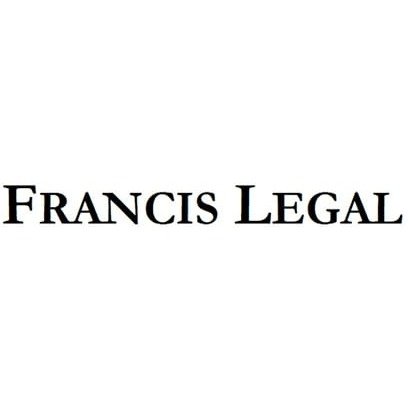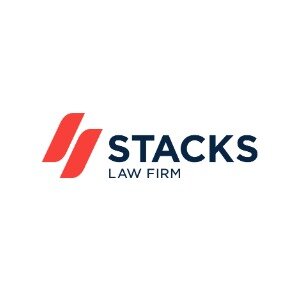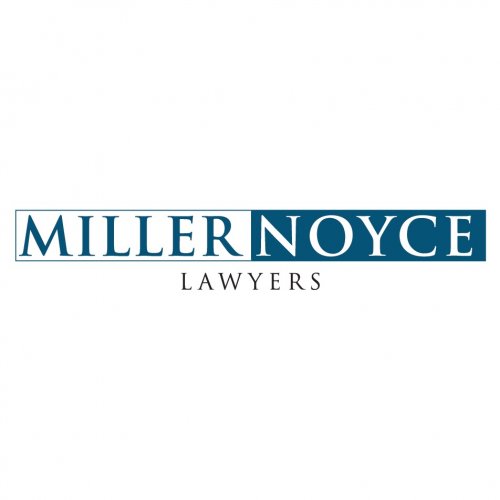Best Inheritance Law Lawyers in Hornsby
Share your needs with us, get contacted by law firms.
Free. Takes 2 min.
List of the best lawyers in Hornsby, Australia
About Inheritance Law in Hornsby, Australia
Inheritance law in New South Wales governs wills, estates, probate, intestacy, and family provision claims. In Hornsby residents, these matters are handled under NSW statutes and by the NSW Supreme Court Probate Registry. The primary laws include the Succession Act 2006, the Probate and Administration Act 1891, and the Real Property Act 1900. Executors, beneficiaries, and potential challengers all rely on these rules to manage asset distribution after a death.
Wills determine how assets are distributed, while intestacy rules apply when there is no valid will. An orderly process helps ensure debts are paid and beneficiaries receive their entitlements. In Hornsby, many families choose to work with a solicitor or barrister to navigate complex issues such as contingent beneficiaries, dispute resolution, or digital assets. NSW Legislation - Succession Act 2006 provides the framework for these matters.
“The Succession Act 2006 provides the framework for wills, estates, and family provision claims in NSW.”
For residents of Hornsby, obtaining clear guidance from a solicitor or legal counsel can prevent costly mistakes and delays. The local Probate Registry processes applications for probate and letters of administration under NSW law. If disputes arise, experienced counsel can help prepare for court hearings in the Supreme Court of NSW. NSW Public Trustee and Guardian offers additional support for estates requiring administration.
Why You May Need a Lawyer
Working with a solicitor or barrister in Hornsby can save time and reduce risk in estate matters. Complex situations rarely fit into a simple template, so professional guidance is valuable.
- There is a contested will or suspected undue influence affecting a Hornsby estate. A lawyer can assess capacity, preserve evidence, and prepare a matter for court if needed.
- The estate includes business interests, multiple properties, or assets held overseas. A legal adviser helps with tax implications, asset transfers, and cross-border issues.
- Executor duties are unclear, or you are named as executor but lack experience managing debts, superannuation, or claims from potential beneficiaries.
- You need probate or letters of administration in NSW. A solicitor can prepare the correct applications and coordinate with the Supreme Court of NSW.
- There is a potential family provision claim. A lawyer can evaluate eligibility, gather evidence, and present a persuasive case in court.
- Your estate planning should address digital assets and succession planning for the next generation. A solicitor can draft a will that reflects modern asset types and wishes.
Local Laws Overview
The following NSW laws are central to inheritance matters in Hornsby and across the state. Always refer to the current text on the official NSW legislation site for any amendments.
- Succession Act 2006 (NSW) - Governs wills, intestacy, and family provision claims. This Act provides the core rules for how estates are distributed and how family members may challenge a will. NSW Legislation
- Probate and Administration Act 1891 (NSW) - Sets out the process for obtaining probate or letters of administration and related administrative procedures. NSW Legislation
- Real Property Act 1900 (NSW) - Regulates the transfer of real property and other land related processes, which are often involved in estate distributions. NSW Legislation
Recent reform discussions in NSW also address modern issues such as digital assets and evolving family provision expectations. For authoritative updates, consult NSW Law Reform resources and the official legal information sites. NSW Law Reform Commission provides context on evolving estate law.
Key statutory concepts in Hornsby include probate, letters of administration, executor duties, and the right to challenge a will under the Succession Act 2006. An understanding of these terms helps residents plan and respond effectively.
“In NSW, probate and administration processes are handled through the Supreme Court Probate Registry.”NSW Public Trustee and Guardian
Frequently Asked Questions
What is intestacy and how does it work in NSW?
Intestacy applies when there is no valid will. The Succession Act 2006 dictates how assets are distributed among spouses, children, and other relatives. If you are an eligible claimant, you may receive a share regardless of your relationship to the deceased. NSW Legislation
How do I apply for probate in Hornsby, NSW?
To apply, you generally need a valid will, the death certificate, and a list of assets and debts. A solicitor will prepare the probate application for the Supreme Court of NSW. The process may take several weeks to months, depending on complexity and court workload. NSW Legislation
How much does an inheritance lawyer cost in NSW?
Costs vary with complexity and the size of the estate. Expect hourly rates for solicitors and possible legal fees for court appearances. Ask for a fixed-fee quote for straightforward probate or administration matters. NSW Law Services
How long does a family provision claim take in NSW?
Family provision timelines depend on evidence, complexity, and court schedules. Simple matters may resolve in months, while contested cases can extend to a year or more. Your solicitor can provide a case-specific estimate. NSW Justice
Do I need a lawyer to make a will in Hornsby?
While you can draft a will without a lawyer, a solicitor helps ensure validity and reduces the risk of dispute. A well-drafted will can prevent costly probate challenges and clarify executor duties. NSW Public Trustee and Guardian
What is the difference between probate and letters of administration?
Probate is a court-issued document confirming the will's validity. Letters of administration grant authority when there is no will (intestacy) or when the will does not name an executor. In both cases, a solicitor helps prepare and lodge applications. NSW Legislation
Can digital assets be included in an estate in NSW?
Yes, digital assets may form part of an estate if properly identified and included in the will. Planning for digital assets requires clarity on access and distribution rights. A solicitor can help document these provisions. LawAccess NSW
Should I contest a will in NSW?
Contesting a will is a serious decision and requires evidence of capacity, undue influence, or inadequate provision. A solicitor can assess merits and advise on practical steps and potential costs. NSW Legislation
How do I change an executor in NSW?
You can change an executor by updating the will or through court orders in limited circumstances. If the executor role becomes unfit or conflicted, seek legal advice promptly. NSW Public Trustee and Guardian
When should I consider appointing an enduring power of attorney in inheritance matters?
Consider an enduring power of attorney to handle financial matters if you lose capacity. This planning reduces future disputes around administration of the estate. Consult a solicitor about suitable documents and execution. LawAccess NSW
Where can I find free legal aid for wills disputes in NSW?
LawAccess NSW offers free legal information and referrals for wills and estates matters. They can help you determine eligibility and connect you with appropriate services. LawAccess NSW
Is superannuation death benefits part of the estate in NSW?
Superannuation death benefits are generally not part of the deceased's estate for distribution under the will. They pass according to superannuation fund rules unless a valid binding death benefit nomination or other arrangements exist. Consult a solicitor for specifics on your fund and potential tax implications. ATO - Super Death Benefits
Additional Resources
- NSW Public Trustee and Guardian - Provides information on wills, estates, and administration; supports capacity matters and can act for those who cannot manage their affairs. Public Trustee and Guardian
- LawAccess NSW - Government service offering free legal information, referral services, and guidance on wills, probate, and family provision matters. LawAccess NSW
- Australian Taxation Office - Provides guidance on tax obligations related to estates and superannuation death benefits. ATO - Super Death Benefits
Next Steps
- Gather key documents: the will (if any), death certificate, asset and debt lists, and contact details for executors or family members. Allocate 1-2 weeks for collection.
- Identify your goal and legal options: determine probate, administration, or a potential family provision claim. Schedule a consultation with a Hornsby solicitor who specialises in wills and estates within 1-2 weeks.
- Consult a solicitor in Hornsby: obtain a written assessment of your case, including likely costs and timelines. Expect a 1-4 week turnaround for initial advice, depending on complexity.
- Decide on probate or administration steps: if there is a will, apply for probate; if not, apply for letters of administration. Begin the court process with your solicitor in 2-6 weeks.
- Prepare and lodge the necessary applications: probate or administration documents with the NSW Supreme Court, and notify creditors where applicable. Plan for 2-12 weeks for processing depending on complexity.
- Communicate with beneficiaries and resolve disputes: establish a timeline for responses, mediation, or court proceedings if required. Allocate 1-6 months for initial dispute resolution.
- Plan for ongoing estate management: implement strategies to distribute assets and update your own estate plan for the future. Review annually or after major life events.
Lawzana helps you find the best lawyers and law firms in Hornsby through a curated and pre-screened list of qualified legal professionals. Our platform offers rankings and detailed profiles of attorneys and law firms, allowing you to compare based on practice areas, including Inheritance Law, experience, and client feedback.
Each profile includes a description of the firm's areas of practice, client reviews, team members and partners, year of establishment, spoken languages, office locations, contact information, social media presence, and any published articles or resources. Most firms on our platform speak English and are experienced in both local and international legal matters.
Get a quote from top-rated law firms in Hornsby, Australia — quickly, securely, and without unnecessary hassle.
Disclaimer:
The information provided on this page is for general informational purposes only and does not constitute legal advice. While we strive to ensure the accuracy and relevance of the content, legal information may change over time, and interpretations of the law can vary. You should always consult with a qualified legal professional for advice specific to your situation.
We disclaim all liability for actions taken or not taken based on the content of this page. If you believe any information is incorrect or outdated, please contact us, and we will review and update it where appropriate.











